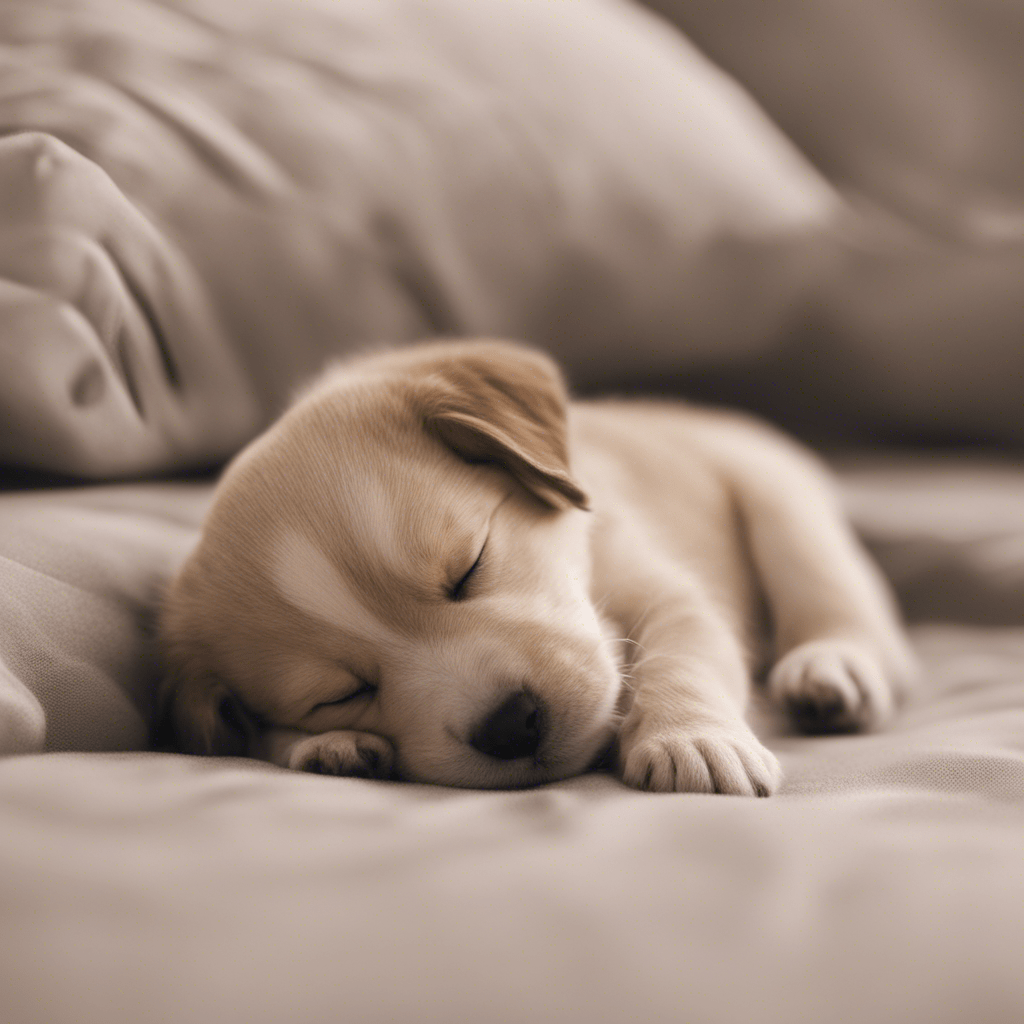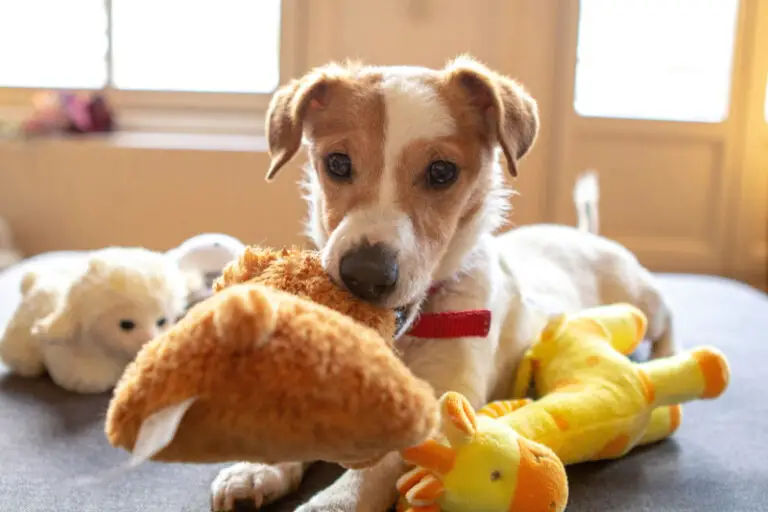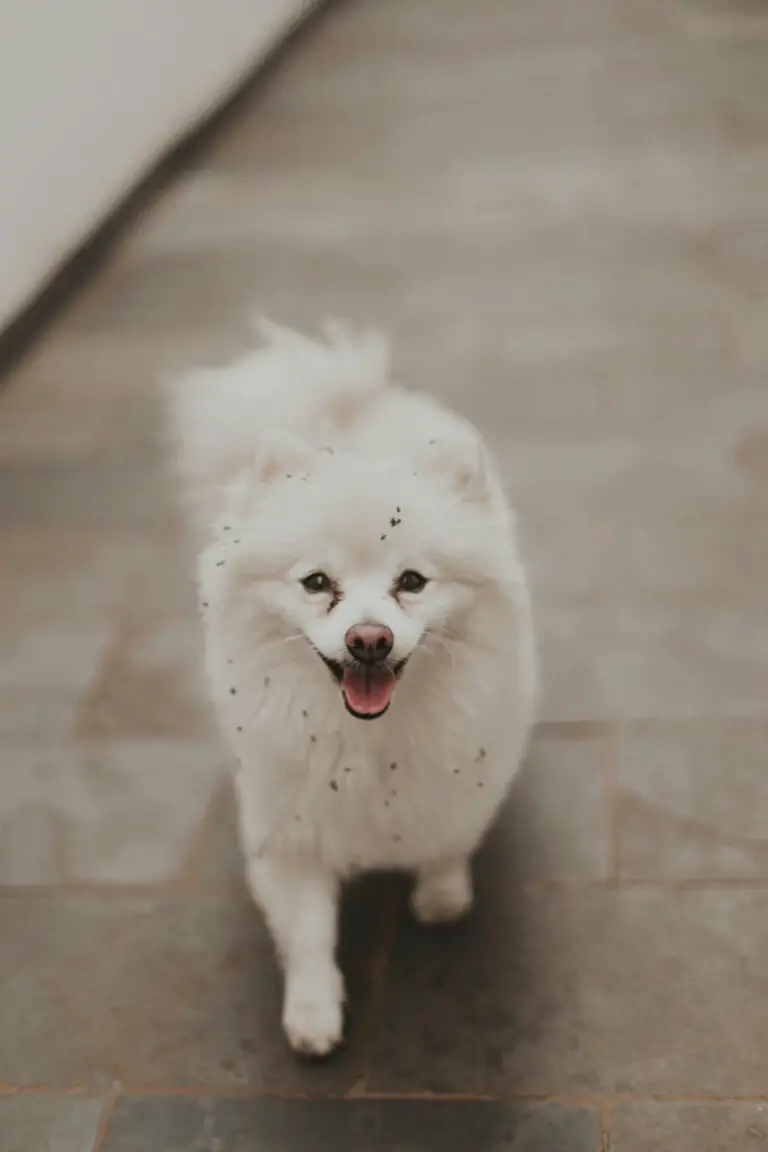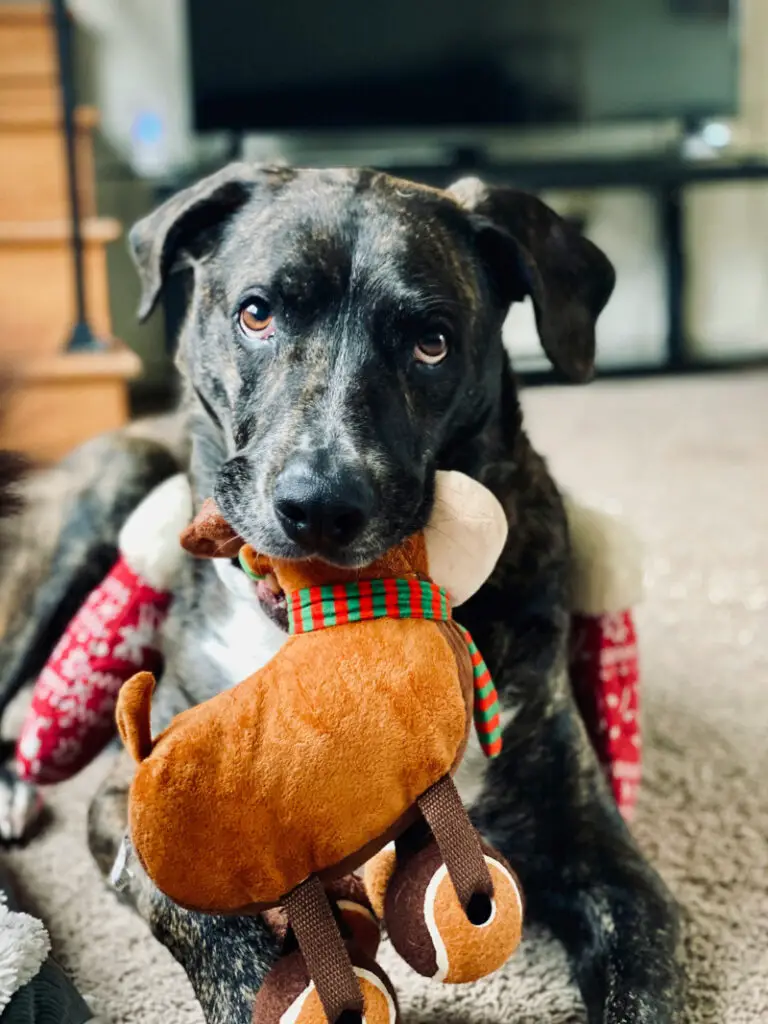We all remember those exciting moments of welcoming a new bundle of fur into the home, but one of the first questions asked is: where should your puppy sleep during the first few nights? There’s boundless energy, adorable moments and… sleepless nights? Yes, navigating through the early days and weeks of your puppy’s sleep can be a tricky chore. Much like human babies, puppies require a significant amount of sleep. Acclimatizing your new family member goes beyond just indulging those cute puppy eyes. It involves understanding their sleep needs, creating a comfortable environment, and handling any disturbances or separation anxieties.
As pet owners ourselves, we understand that our duty reaches far beyond the daytime play and feeding. It stretches into the nights, where they need comfort, security, and space to rest. Having a puppy sleep comfortably during the first few nights is crucial to their health and body development. No two puppies are the same, but they usually have similar sleeping patterns. Learning about these patterns, and what influences them, is the first step to helping your young canine friend sleep peacefully during those first challenging nights.
This isn’t just about your puppy’s comfort. After all, a well-rested puppy means a well-rested owner! Getting your puppy to sleep efficiently is a win-win situation. Plus, aren’t the sight and sound of a peacefully sleeping puppy among the most heartwarming experiences one could have? Consider this your guide, a go-to source that will help equip you with the knowledge to navigate these initial stages with your new puppy.
Let’s walk together as we delve into understanding your puppy’s sleep needs, setting up an ideal sleeping environment, and managing any potential disturbances. This isn’t just about providing answers, it’s about enhancing the bond between you and your puppy. Remember, these initial sleep struggles and late-night yelps are temporary. Coping with them adequately results in a loving, secure, and well-adjusted companion. So, let’s nestle down into the wonderful world of puppy dreams, and find out where your puppy should sleep during their first few nights.
Table of Contents
Understanding Your Puppy’s Sleep Needs
Normal Sleeping Behavior in Puppies
Any puppy parent will testify to the vast amount of sleep their fur babies seem to need. A typical puppy sleep cycle involves being very active morning and evening, with lengthy nap times in between, and a long sleep during the night.
Sleep Duration
Most puppies sleep for about 14 hours each day, though some larger breeds, or puppies in their early development stages, may need up to 18 hours. This excessive sleep gives your pup the rest they need to grow and develop.
Sleep Schedule
Your puppy’s sleep schedule might confuse you. Unlike humans, puppies often spend their daytime hours sleeping. Smaller breeds usually require more sleep than larger ones. It’s also common for puppies to sleep a lot during the day and remain awake at night.
Age-related Changes in Sleep Patterns
As your puppy grows older, there will be changes in their sleep patterns. Puppies often sleep for longer periods, waking only for feeding and brief playtime. As they mature, puppies start to sleep more at night and become more active during the day.
Recognizing Sleep Problems in Puppies
Understanding your puppy’s sleep needs also includes recognizing when there might be a problem.
Common Symptoms
Sleep problems can manifest through changes in your puppy’s sleeping behavior. They might be sleeping too much or manifest symptoms like restlessness or have difficulty settling down.
Possible Causes
Changes in their environment, discomfort, or medical issues can lead to sleep problems. For example, a change in home, a new family member, or a stressful event might disturb their sleep.
When to Seek a Vet’s Help
Puppy sleep problems are not uncommon and can often be resolved with patience and necessary adjustments. However, if there is an abrupt change in their sleeping habits or if you notice symptoms like loss of appetite or lethargy, it’s essential to seek a vet’s help.
Importance of Good Sleep for a Puppy’s Development
Ensuring that your puppy gets plenty of restful sleep is integral to their health and development.
Physical Growth
During deep sleep phases, the body releases growth hormones. Thus, a good sleep isn’t just about rest; it’s when your pup physically grows.
Mental Health and Learning
Sleep also aids in their learning and memory consolidation. It is during these precious hours of rest that the lessons and experiences of the day are processed and stored. So, helping your puppy sleep is indeed fostering their overall development. A healthy sleep cycle, proper understanding of puppies sleep schedules and identifying potential puppy sleep problems early on can ease the transition for both the owner and the pet during this thrilling but challenging time of their life together.
Where Should Your Puppy Sleep: Creating the Ideal Sleeping Environment
Setting Up Your Puppy’s Sleeping Area
Remember the first time you brought your puppy home? The excitement, the joy, the love – it’s almost like bringing home a newborn baby. Bearing that in mind, as with a human baby, the need for creating a comfortable sleeping environment for your pup cannot be underlined enough. Let’s look further into this.
Choosing an Ideal Location
The ideal location for puppy sleep could change depending on their age, size, and habits. A quiet, safe and comfortable place where you can keep an eye on them is often the best. Make sure the area is free from hazards like electrical wires or small items that a pup might chew or swallow. A place that is not drafty, and not directly under a heating vent or in direct sunlight, is best.
Selecting the Right Bedding
Choosing the right type of puppy bedding is also a crucial factor. There are a plethora of options from plush beds to heated mats, crate mats, elevated beds, and cooling beds for the summer. The choice really depends on what suits your puppy’s needs best. The bedding should be warm, comfortable, and ideally easily washable.
Maintaining a Calming Atmosphere
The ambiance of your puppy’s sleep location should help them wind down. Soothing music or white noise machines can aid in creating a calming atmosphere. You can also explore pet-friendly diffusers or calming sprays.
When Should Your Puppy Sleep: Setting a Consistent Bedtime Routine
A puppy bedtime routine is critical for ensuring your puppy gets a good night sleep. Like humans, dogs also thrive on routine.
Establishing Feeding and Potty Timings
A significant part of potty training night involves scheduling your puppy’s last meal a few hours before their bed time, followed by a quiet playtime or walk. This can help regulate their digestive system and reduce the chances of middle of the night bathroom breaks.
Implementing a Wind-down Routine
Once you have the feeding and potty schedule figured out, creating a wind-down routine for your puppy can be a game-changer. This can include quiet play, gentle petting, or even a bedtime story. This will signal to your puppy that it’s almost time to sleep.
Importance of Consistency
The key is consistency. Building a comforting and predictable routine helps your puppy understand what to expect, thereby reducing anxiety and promoting better quality sleep.
Using Training Aids to Help the Puppy Sleep
Training your puppy to get acclimated to their sleeping location can go a long way in helping them sleep through the night.
Use of Crates and Playpens
Crate training is a popular option for many pet parents. While some puppies may take readily to a crate, for others it may take time. Whichever method you decide to use, make sure the crate or playpen is spacious enough for the puppy to turn around and lie down comfortably.
Comfort Items
Comfort items, such as blankets that smell like their cagemates or mother, or heartbeat puppies, can have a tremendous calming effect. Remember, transitioning from being surrounded by their littermates to sleeping alone can be daunting for a young puppy. Finally, cherish these moments because puppies grow up quickly, and establishing good sleep habits now will help set them up for success in the future. Be patient, persistent, empathetic, and remember, you’re not alone in this journey.
Coping with Disturbances and Separation Anxiety
Understanding and Managing Separation Anxiety
As comforting as it is for your puppy to have you present, there will be moments where they must be alone. This can be a daunting experience and may lead to canine separation anxiety.
Identifying Symptoms
Noticing the signs early plays a crucial role in managing separation anxiety. Changes in your puppy’s sleep cycle, excessive barking or whining when left alone, and destructive behavior when you’re not around are all potential indications of separation anxiety.
Offering Reassurance and Comfort
Creating a comforting environment with their favorite toys or comfort items can help alleviate anxiety. Leaving scents that remind them of you in their sleeping location, such as a shirt you have worn, can also be soothing during your absence.
Training Techniques to Alleviate Anxiety
Consistent training can go a long way in developing your puppy’s independence. Crate training forms an essential part of this process. Teaching your puppy to associate the crate with positive experiences can create a safe den-like space for them.
Handling Nighttime Disturbances
As much as we envision peaceful nights with our puppies curled up by our sides, the reality can often include midnight potty emergencies, behavior issues, and the occasional health concern.
Potty Emergencies
A common disturbance during the night is your puppy needing to relieve themselves. Scheduling meals, limiting water intake before bed, and potty training during the night can help control these incidents.
Negative Behavior
Young puppies may exhibit negative behaviors like crying, barking, or gnawing at their crate in the night. Often, this behavior stems from distress or unease. Consistent bedtime routines, setting the right atmosphere, and ensuring they are comfortable can help to minimize these issues.
Potential Health Concerns
Nighttime disturbances could also stem from potential health concerns. Common issues include gastrointestinal upset, fleas, or even allergies causing discomfort. Regular checkups with your vet can help catch and manage these issues early on.
Integration of the Puppy with Other Pets in the House during Sleep
If you have other pets in your home, integrating your new arrival into the family involves navigating potential conflicts, particularly when it comes to sleeping arrangements.
Gradual Introductions
Like any new relationship, initially keeping the new puppy separate from other pets and then gradually introducing them can help ease the transition. It’s essential to keep a watchful eye on their interactions.
Establishing Boundaries Between Pets
It’s crucial to maintain distinct boundaries when it comes to sleeping arrangements. Providing each pet with their own sleeping location and making sure that they respect these boundaries can significantly reduce conflict and facilitate a peaceful cohabitation. Remember, your puppy’s first few weeks at home will be a period of adjustment and learning for both of you. It’s your love, patience, and understanding that can make it an enjoyable experience for your new family member. Soak up these precious moments, because they won’t remain puppies forever.
Recap Main Points About Where Should Your Puppy Sleep
As we’ve journeyed through the challenges of those first few nights with your new puppy, remember that establishing a comfortable and secure space for them to sleep is paramount. Identifying the ideal location that offers safety, comfort and is free of distractions forms the first essential step. Then, choosing the right bedding that is warm, cozy and easily washable would be the next move. Maintaining a calming atmosphere that helps your puppy wind down, maybe with some soft melodies or gentle pet-friendly aromas, is beneficial to instill a sense of serenity and security. Establishing a consistent bedtime routine that features regulated feeding and potty timings along with a gentle wind-down routine can help signal bedtime to your puppy, thereby making the transition smoother. Crate training can be particularly effective in helping your puppy understand their sleeping space. Remember to gradually acclimate your puppy to their crate, making it a rewarding and positive experience. Furthermore, comfort items such as blankets, heartbeat pillows, or even items that smell like you can ease canine separation anxiety and provide solace.
Encourage Owners to Practice Patience and Consistency for a Happier, Better-Rested Puppy in the Long Term
Caring for a new puppy is similar to raising a child. It requires patience, consistency, immense love and a sense of understanding. Puppies, like little babies, are trying to get accustomed to their new world. It’s our responsibility as their caregivers to pave the way for their smooth integration. Expecting overnight success can often lead to frustration, discouragement and a stressed puppy. It’s important to remember that helping a puppy sleep through the night is a process. The bedtime routine set for your puppy will not be perfect from day one. It will evolve as you spend more time with your puppy, understand their habits and preferences, and the puppy grows and matures. As they age, their sleep schedules will change. Nighttime potty breaks will become less frequent, and they may need less physical comfort. Training them right, setting boundaries early on, particularly if there are other pets in the house, will aid in their seamless integration. So, in those dark moments when you’ve been woken up for the third time that night to take your puppy out or when they seem restless and anxious, remember the bond you are building. This stage is but a small drop in the ocean of love, companionship, and fulfillment that you will get from your furry friend in the years to come. So breathe, love, cuddle, and remember, your little puppy is relying on you to set them up for success, guiding them patiently and persistently on a path that leads to a happier, healthier, and better-rested puppy in the long term. You’ve got this!




